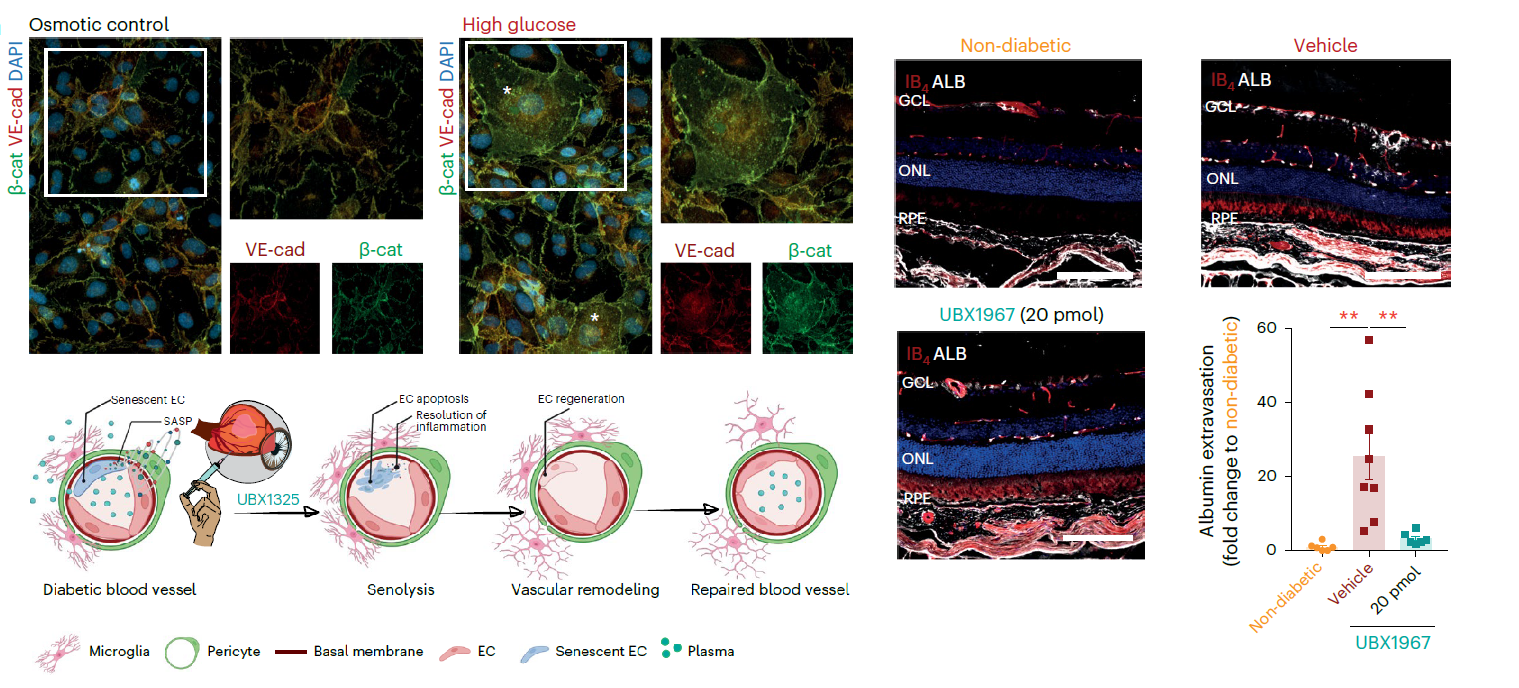Crespo-Garcia S, Fournier F, Diaz-Marin R, Klier S, Ragusa D, Masaki L, Cagnone G, Blot G, Hafiane I, Dejda A, Rizk R, Juneau R, Buscarlet M, Chorfi A, Patel P, Beltran PJ, Joyal JS, Rezende FA, Hata M, Nguyen A, Sullivan L, Damiano J, Wilson AM, Mallette FA, …Sapieha P (2024). "Therapeutic targeting of cellular senescence in diabetic macular edema: preclinical and phase 1 trial results" Nature Medicine. Fev
Résumé original
Compromised vascular endothelial barrier function is a salient feature of diabetic complications such as sight-threatening diabetic macular edema (DME). Current standards of care for DME manage aspects of the disease, but require frequent intravitreal administration and are poorly effective in large subsets of patients. Here we provide evidence that an elevated burden of senescent cells in the retina triggers cardinal features of DME pathology and conduct an initial test of senolytic therapy in patients with DME. In cell culture models, sustained hyperglycemia provoked cellular senescence in subsets of vascular endothelial cells displaying perturbed transendothelial junctions associated with poor barrier function and leading to micro-inflammation. Pharmacological elimination of senescent cells in a mouse model of DME reduces diabetes-induced retinal vascular leakage and preserves retinal function. We then conducted a phase 1 single ascending dose safety study of UBX1325 (foselutoclax), a senolytic small-molecule inhibitor of BCL-xL, in patients with advanced DME for whom anti-vascular endothelial growth factor therapy was no longer considered beneficial. The primary objective of assessment of safety and tolerability of UBX1325 was achieved. Collectively, our data suggest that therapeutic targeting of senescent cells in the diabetic retina with a BCL-xL inhibitor may provide a long-lasting, disease-modifying intervention for DME. This hypothesis will need to be verified in larger clinical trials. ClinicalTrials.gov identifier: NCT04537884.

Revue de presse – udmnouvelles
Un nouveau médicament pour un jour aider les patients diabétiques



